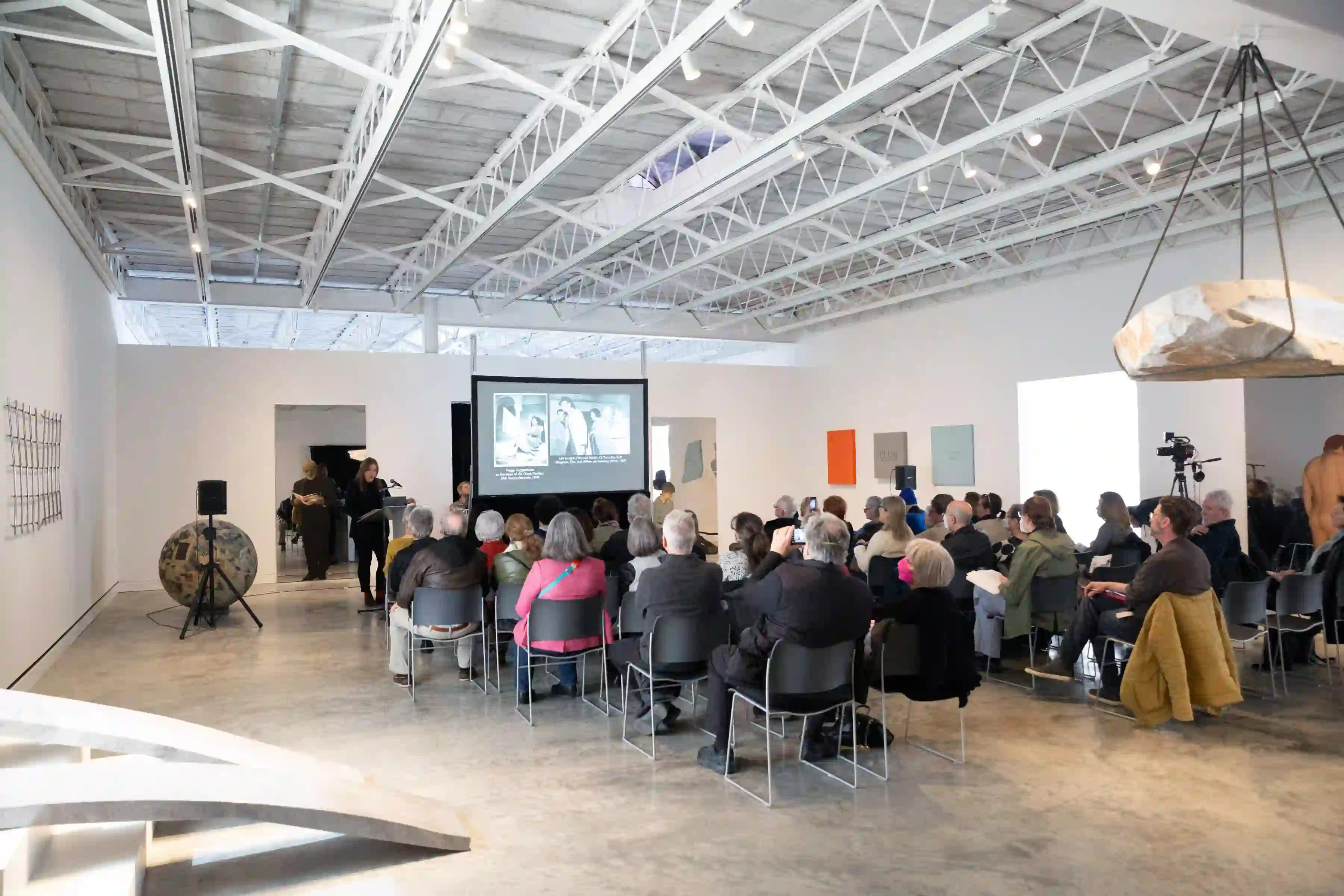The 2024 lecture series, was dedicated to the plurality and heterogeneity of Italian culture in the long 1968, and to the bold efforts of individuals and groups to confront and rework the legacies of the past via mediations of form. How did forms—of painting, of sculpture, of relation, of performance—evolve in the face of social and political change in Italy and abroad? What drove the manifold aesthetic revolutions of the 1970s? How did women appropriate and subvert the cultural heritage of Eurocentric patriarchy from the space of their difference? And why do these evolutions of form still matter?
Each lecture offered a case study in powerful attempts by artists and writers active in post-WWII Italy “to wrest tradition away from conformism.” Claudio Crescentini traced the trajectory of the revolutionary and anti-colonial art practice of Mozambican-Portuguese painter and sculptor Bertina Lopes from Maputo to Lisbon to Rome. Ara Merjian investigated the afterlife of futurism in postwar Italian sculpture, sculpture’s centrality to the shifting landscape of aesthetics, and the ghosts of fascism that continued to haunt new forms. Emily Antenucci offered a window onto the experimental political theater of Adele Cambria and the feminist collective Teatro La Maddalena, whose project Amore come rivoluzione (1976) turned to Antonio Gramsci’s archives to recuperate the forgotten role of women—and their emotions—in contemporary history.
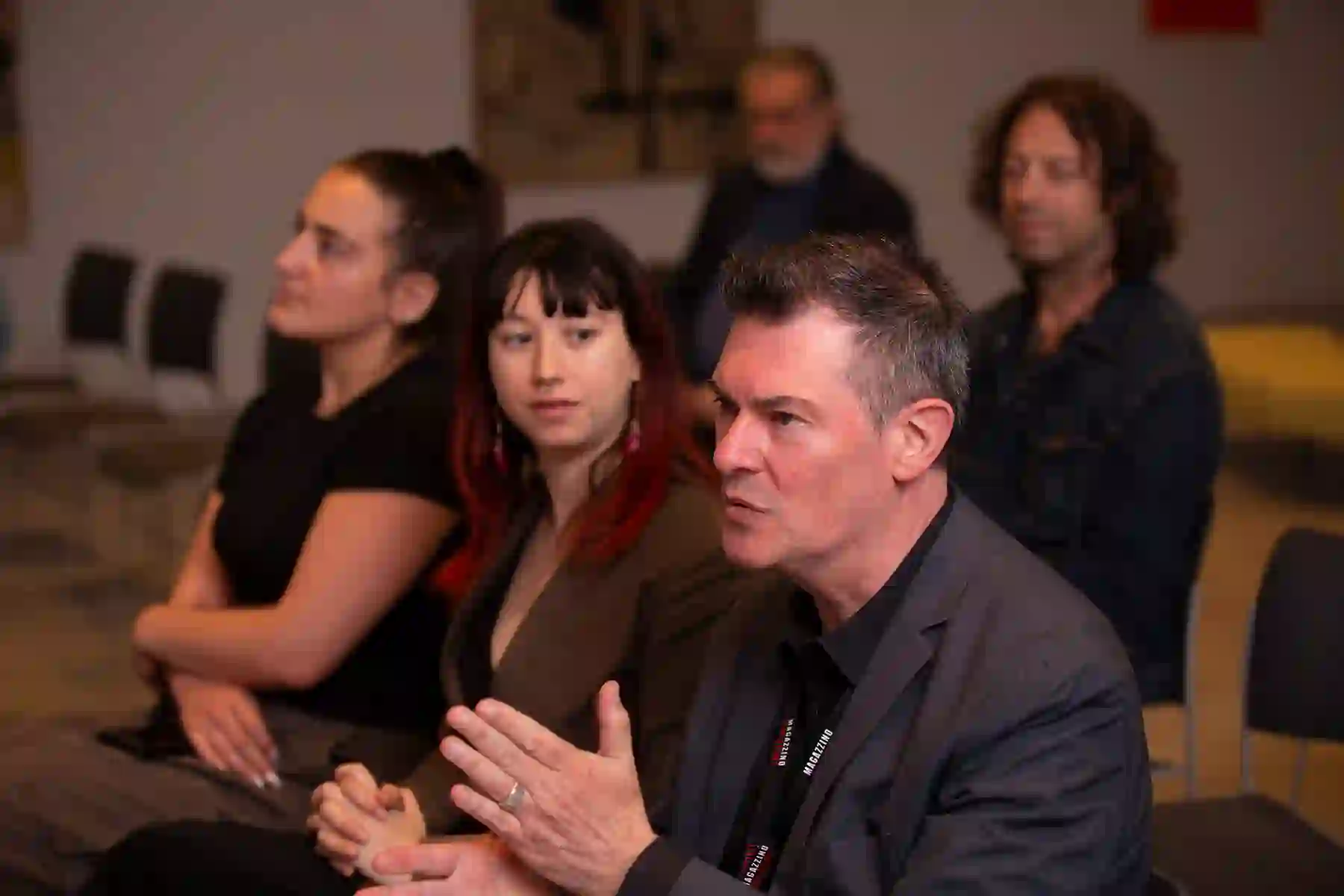
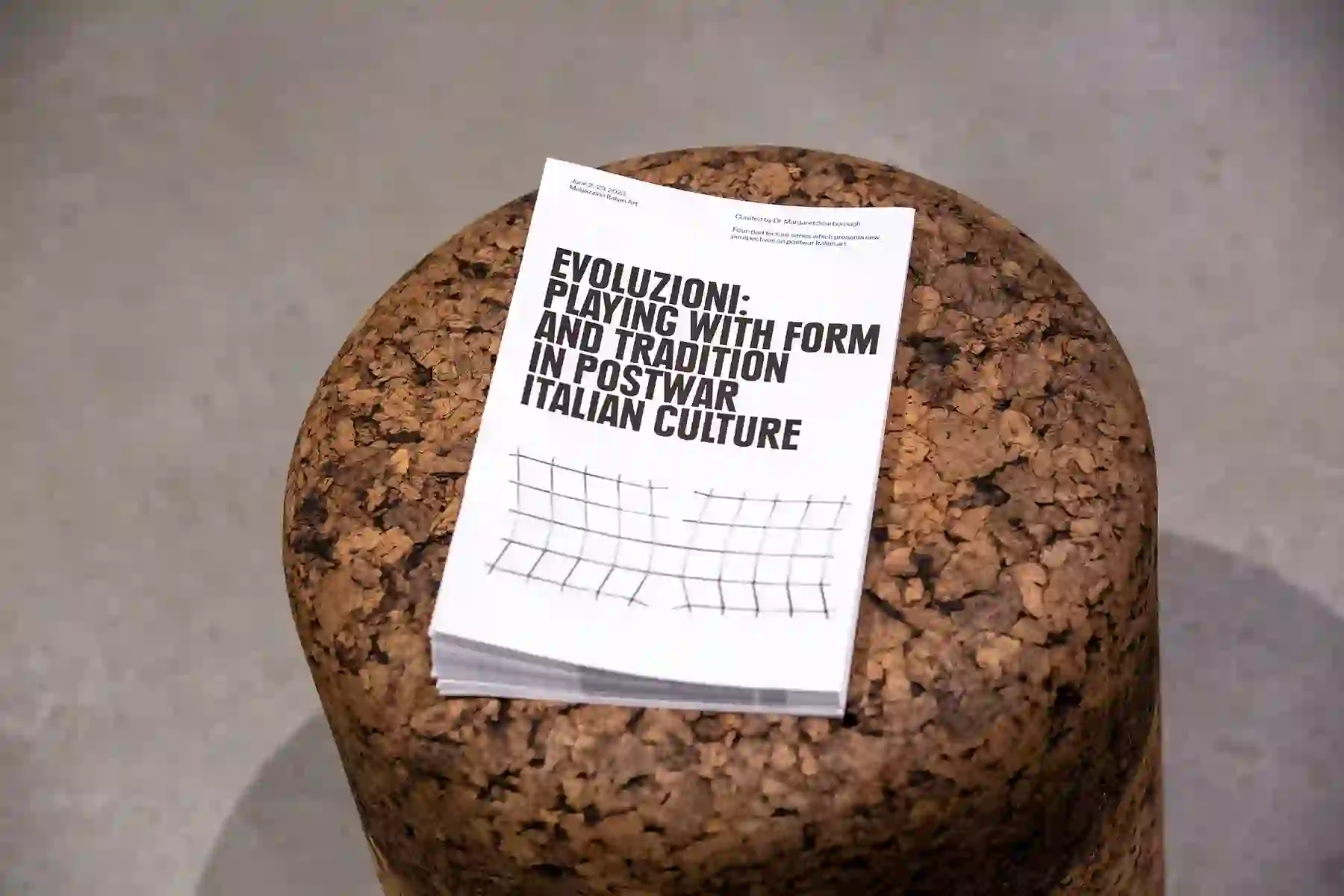
The lectures lasted approximately 45 minutes and were followed by a Q&A session.
Details on each program and lecturer follow below:
From South to West: The Aesthetic Revolution of Bertina Lopes
Claudio Crescentini, Curator and Art Historian, Sovrintendenza Capitolina ai Beni Culturali di Roma
June 2, 2024 | 12:00 p.m.
The first lecture of the series was an online event. Over the course of the second half of the twentieth century, Mozambican-Portuguese artist Bertina Lopes (1924-2012) developed a revolutionary and political practice of painting that bridged cultures and borders. This paper explores how Lopes brought a distinct stylistic and iconographic vision of art “from the south of the world to the west,” to create a singular body of work rooted in her own political activism and social criticism, which challenged the Western perspectives of European avant-gardes.
A Totality of Fragments: Postwar Italian Sculpture from Design to Dematerialization
Ara H. Merjian, Professor of Italian Studies, New York University
June 9, 2024 | 12:00 p.m.
Examining a range of artistic practices from Situationism to Arte Povera, this lecture addressed the centrality of sculpture to post-war conceptions of aesthetics, particularly as they evolved out of—and away from—Futurist experiments. As the medium closest to mere objecthood, sculpture proved a flashpoint in Futurist conceptions of art’s autonomy and, conversely, its potential reconciliation with the totality of life. This lecture considered the long gestation of postwar practices of design and dematerialization as they took shape in approaches to sculpture, as both object and idea.
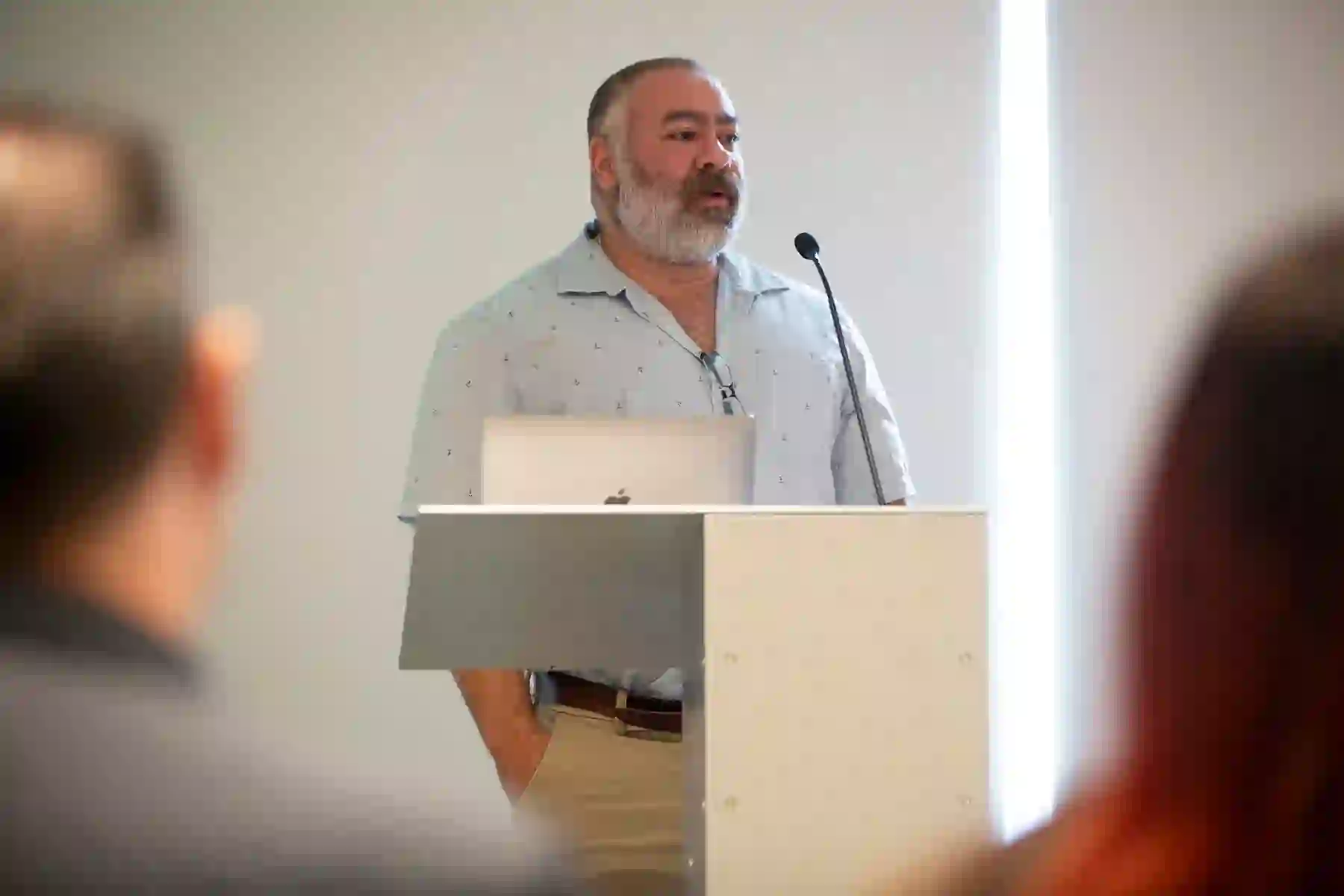
The Poor Art of Patriarchy: Carla Lonzi on Creativity and Recognition
June 23, 2024 | 12:00 p.m.
When Italian art critic Carla Lonzi (1931-1982) founded the radical feminist group Rivolta femminile with other women in 1970, she chose to leave behind a successful career in the contemporary art world. Taking distance from art as a patriarchal paradigm, Lonzi explored new avenues of personal expression and relation until her premature death in 1982. This lecture identified Lonzi’s rejection of patriarchal models of creativity as an important moment in the evolution of her feminist theory of recognition, and examined how her close relationships with male artists inform the trajectory of her embodied relational journey of authentic selfhood.
“Amore come Rivoluzione”: Love and Revolution in Teatro La Maddalena’s Nonostante Gramsci
Emily Antenucci, Visiting Assistant Professor of Italian, Vassar College
June 29, 2024 | 12:00 p.m.
Italian neofemminismo was committed to identifying and recuperating female voices and figures that had been ‘lost’ or overlooked throughout history. Amore come rivoluzione, the historical and dramaturgical project carried out by Adele Cambria and the feminist theater collective Teatro La Maddalena in 1976, participated in the feminist endeavor to redress history through archival exploration and experimental performance. Cambria, writer, editor, actress, and co-founder of La Maddalena, gathered the untouched responses to Antonio Gramsci’s prison letters, and used them as the basis for feminist inquiry and performance in her work of political theater, Nonostante Gramsci. This lecture explored how Cambria's project underscores the power and necessity of pairing the critical reflection of epic theater with the emotional connection embraced by feminist consciousness-raising.
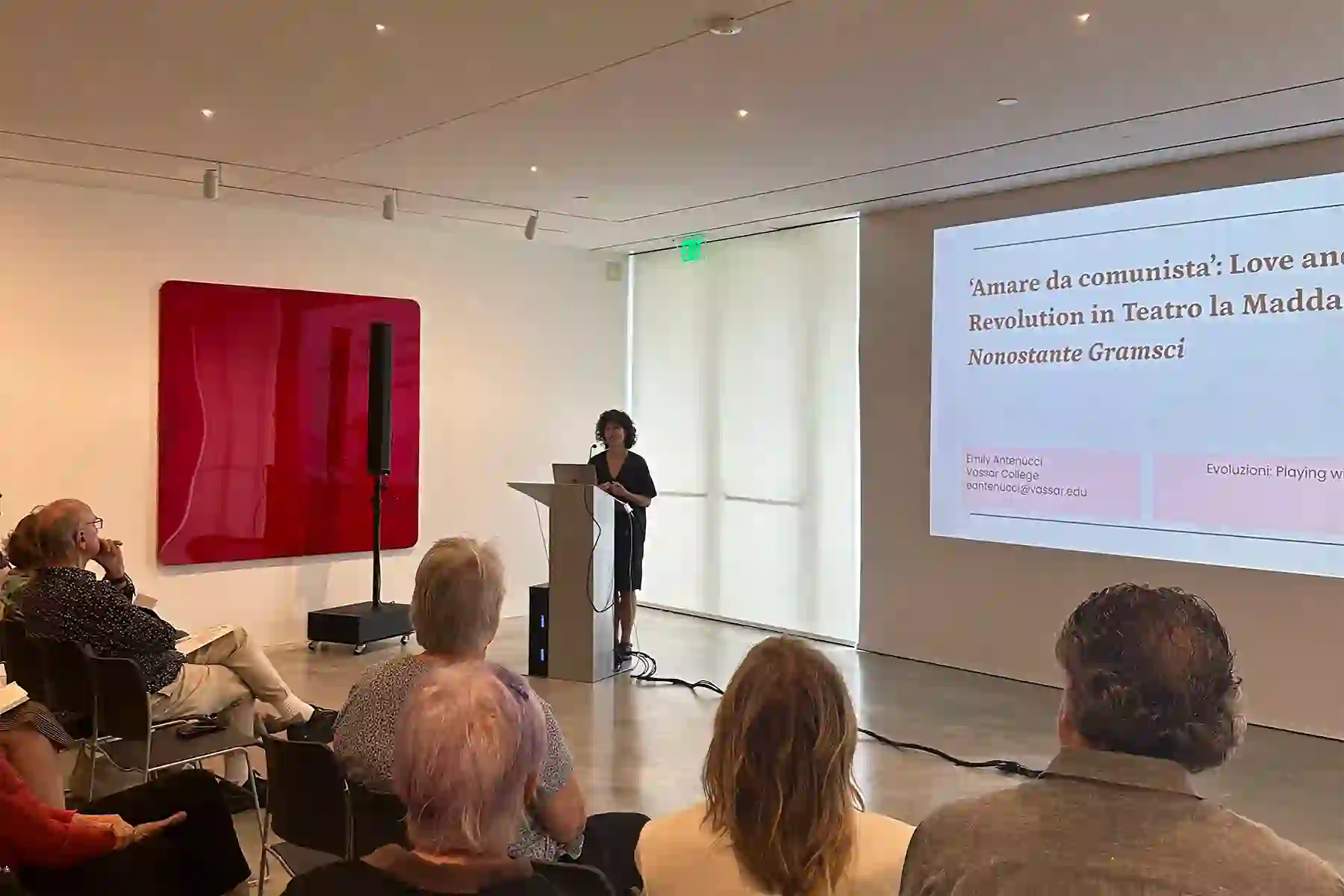
About Claudio Crescentini
Claudio Crescentini is an art historian, curator, and essayist specialized in the multilingualism and mediality of modern and contemporary art. He is the Coordinator of Artistic Patrimony of the Historic Buildings and City Museums for the Capitoline Superintendency of Cultural Heritage in Rome. From 2018 to 2023, he oversaw exhibitions and events at the Galleria d’Arte Moderna in Rome; and at MACRO (Museo d’Arte Contemporanea di Roma) from 2014 to 2017.
Crescentini has published widely on the painting practice of writer and director Pier Paolo Pasolini. He curated the exhibition Pasolini Pittore at the Galleria d’Arte Moderna in Rome (2022-2023)—the first dedicated to Pasolini’s paintings. In 2017, he was the guest curator of the Arte Biennale of Karachi (Pakistan). He co-curated the show Paessagi Elettronici (Electronic Landscapes) for the XVI Quadriennale d’Arte di Rome in 2016; and is co-curator of the ongoing exhibition project International Perspectives: From La Biennale di Venezia to Rome, which brings site-specific Biennale installations by international artists to Rome. He has also curated several shows and catalogues dedicated to Giorgio de Chirico.
Crescentini is a member of the Scientific Committee of the Fondazione Toti Scialoja. He has also served as the Scientific Director of the Archivio Bertina Lopes (1999-2002); Artistic Director of the Centro Internazionale Antinoo per l’Arte- Centro di Documentazione Marguerite Yourcenar (1998-2002) and Scientific Director of the Archivio Pittorico Vincio Berti in Florence (1993-2002). His other curatorial and catalogue projects include: Miaz Brothers (Rome 2024); Shepard Fairey - 3 Decades of dissent (Rome 2020); Marina Abramovic - Tribute (Rome 2019); Amin Gulgee - 7 (Rome / Karachi / Kuala Lumpur 2018); Keith Haring - Deleted (Rome 2017); Marisa and Mario Merz (Rome 2016); Yahon Chang - The Question of Beings (Rome 2016); William Kentridge (Rome 2016); Roma Pop City 1960-67 (Rome 2016); Li Chevalier - Trajectory of Desire (Rome 2016); Sabine Kacunko – Invincible. A big bacteria project (Rome, Berlin 2015); NOW art before the future (Roma / Rimini / Seoul / London 2013-2015); and the SKY television program A tavola con l’Arte(2000-2002).
About Ara H. Merjian
Ara H. Merjian is Professor of Italian Studies at New York University, where he is an affiliate of the Institute of Fine Arts, the Center for European and Mediterranean Studies, and Comparative Literature. He has written and edited several books, including Giorgio de Chirico and the Metaphysical City: Nietzsche, Paris Modernism (Yale University Press, 2014) and Against the Avant-Garde: Pier Paolo Pasolini, Contemporary Art and Neocapitalism (University of Chicago Press, 2020). He recently co-edited Heretical Aesthetics: Pasolini on Painting (Verso Books), and his two new books, Fragments of Totality: Futurism, Fascism, and the Sculptural Avant-Garde (Yale University Press) and Futurism: A Very Short Introduction (Oxford University Press), are due out this year. His work has appeared in Artforum, Bookform, and the Paris Review, and he writes for The Brooklyn Rail and Art in America. Before arriving at NYU, he taught at Harvard, Stanford, and the San Quentin State Penitentiary
About Emily Antenucci
Emily Antenucci holds a PhD and MA in Italian Studies from New York University and a BA from Vassar College in Italian and Drama. Her research and teaching interests are in 20th- and 21st-century Italian cultural production, with particular emphasis on feminist thought and its resonance with literature, performance, visual art, and film. She recently published an article on Carla Lonzi’s poetics of interruption in Autoritratto, and her forthcoming article on relationality and historical mattering in Natalia Ginzburg’s La famiglia Manzoni will appear in The Italianist this year. Her work on Amore come rivoluzione is a developing project that took shape through a set of panels on ‘Performance and the Political’ that she co-organized and chaired at the 2024 American Association for Italian Studies conference.
